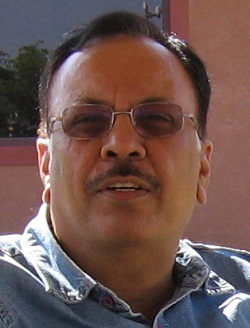Health Care Needs Lifeline: Analysis of processes in and around Delhi reveals patients treated indifferently
I got involved in analyzing the business of patient health care services in Delhi, India, a year or so ago – back when a family member asked for my help exploring an opportunity for a company that published medical journals and was seeking to expand its portfolio.
We knew that hospitals in Delhi were full of patients and if you needed a bed or an operation, you had to wait. Patients struggled to find the best possible treatment at an optimal cost.
Given that environment, we explored several business options, including offering advisory services to patients seeking treatment in specialist hospitals.
Our feasibility study involved mapping the current processes and service practices, identifying demand areas and patient needs, and matching these with the availability, quality and price of services provided by health care providers in a 300-kilometer radius of the capital city of New Delhi.
In rural and small-town India, public health care infrastructure is poor to nonexistent. Everyone – rich, not so rich and poor – is affected by this lack of health care infrastructure. Health care services, in the absence of public hospitals, are provided by local doctors, some of whom are inadequately trained, plus paramedics and alternate medicine healers, some of whom could be classified as quacks, plus poor-quality diagnostic infrastructure. Patients flock to nearby towns looking for basic medical care.
My frequent visits to hospitals and clinics in cities like Agra, Mathura, and Bharatpur included meetings with dozens of doctors, health care sales and marketing professionals, town physicians, quacks, government officials, patients and individuals, which revealed a rather unpleasant picture that varies greatly from the swanky, five-star, privately owned, multi-specialty hospitals in the capital.

Patients, irrespective of their class, financial status or origin, are viewed as potential income by most of the health care service providers – private clinics, small-town hospitals, multi-specialty hospitals, ambulances, paramedics and diagnostic agencies. All marketing tools, traditional and nontraditional, are put to use. These include apparently legitimate and noble activities like organizing free and paid health checkup camps, medical education workshops for doctors, and the like. Not unlike any other type of business marketing, the objective is to increase shop floor footfall.
Sudhir Ahluwalia, left.
There is a marketing network of agents, marketing professionals, sales people, supervisors, senior and junior doctors, hospital superintendents, etc. Everyone has a target, including junior and senior doctors. Business acquisition is an important performance measurement for each professional.
Patients are often handed around in this network – rural clinic to city hospital to diagnostic center to metro multi-specialty hospital, and back. Ambulance providers ferry patients around Delhi to well-equipped critical care centers.
At each stage, under-the-table commissions are handed down to the person referring a patient to another medical facility or individual. Commissions vary from 10 to 40 percent of the bill.
The poor have no option but to throng the few publicly owned hospitals in large cities, where the costs are low and the care is indifferent. Some patients die unattended, falling prey to infection or lack of care. But there are very few who care. After all, we have more than 1 billion people. If a few hundred of the poor die, no big deal.
I found that the rich and the desperate looking for a cure in decent settings have no option but to go through an agent, who could also be their local doctor, who refers them to the hospital of his preference. From then on, the network takes over and the patient is forced to pay through the nose.
Perhaps the solution lies in building a credible health care insurance system in tandem with a strong and effective regulator.
By the way, as we discovered these facts on the state of the industry during the due diligence phase of exploring the patient facilitation and support service business, we decided to drop the idea as it made neither moral nor business sense.
Sudhir Ahluwalia is a business consultant and freelance writer in India.
- Categories
- Education, Health Care
